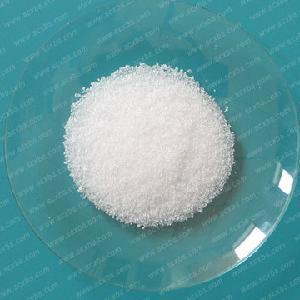On 26-27 May, 2016, the 23rd China
Phosphate Fertilizer Annual Meeting was held in Beijing. Heads from related
government departments such as the Ministry of Agriculture (MOA) and the
Ministry of Industry and Information Technology and representatives from phosphorus chemical enterprises like Yunnan Yuntianhua Co., Ltd. (Yunnan
Yuntianhua), Guizhou Wengfu Group Co., Ltd. and Guizhou Kailin (Group) Co.,
Ltd. got together to discuss the status quo and development trends of the
domestic phosphate fertilizer industry. CCM also took part in the meeting.

Source: Baidu
“During the 12th Five-year Plan period
(2011-2015), China achieved a leading position in the global phosphate
fertilizer market. Market supply was growing steadily.
Meanwhile, the domestic
industry was maturing thanks to the improvement of the industry concentration
and the optimization of the industrial structure.” introduced Zhou Zuye,
president of the China Phosphate Fertilizer Industry Association (CPFIA), at
the meeting, “However, most phosphate fertilizer enterprises were bearing severe
decline in their profits because preferential policies for the industry were
abolished gradually with the accelerated marketization." Specifically:
1. Growths in both production capacity and output
According to data from the National Bureau of Statistics of the People’s
Republic of China, as of the end of 2015, the quantity of phosphate fertilizer
enterprises with annual revenue >=RMB20 million (about USD3 million) from
their main business operations added up to 1,429; the total production capacity
of phosphate fertilizers (converted to P2O5) reached 23.70 million t/a, up
0.85% YoY.
In particular, production capacity of monoammonium phosphate (MAP)
and diammonium phosphate (DAP) was 18 million t/a and 21.10 million t/a
respectively.
In regard to output, the national figure in 2015 hit 17.95 million tonnes with
a YoY growth of 5.09%.
2. Steady improvement in industry concentration
During 2011-2015, Chinese phosphate fertilizer enterprises kept shifting their
production capacity towards areas rich in phosphorus resources.
In 2015, the
combined phosphate fertilizer output from Yunnan, Guizhou, Hubei and Sichuan
provinces (top 4 provinces that are rich in phosphorus resources) accounted for
75.20% of the national total, up 10 percentage points over 2010; that from the
biggest 10 domestic phosphate fertilizer enterprises occupied 59.30% of the
national figure, up 13.30 percentage points over 2010.
3. Optimization of industry structure
During 2011-2015, output of high concentration phosphate fertilizers such as
MAP and DAP continued growing and occupying an increasing proportion to the
total. In this period, the total output of high concentration phosphate
fertilizers reached 16.62 million tonnes with its proportion to the total up
1.80 percentage points over the last five years (2006-2010).
In addition, sales
of new fertilizers such as slow release fertilizers and water-soluble
fertilizers surpassed 10% of the total for the first time.
4. Severe decline in profits
Oversupply was worsening as the growth of demand slowed down in both domestic
and foreign markets. In addition, preferential policies for the industry were
abolished gradually with the accelerated marketization.
As a result, phosphate
fertilizer enterprises suffered significant declines in their profits even
though most of them gained growths in both output and sales. Specifically,
their average profit margin fell from 5.90% in early 2011 to only 2.10% at the
end of 2015.

Analyst CCM concluded the development
trends of China's phosphate fertilizer industry in the near future based on
opinions from industry insiders and enterprise representatives:
1. Phaseout of outmoded production capacity and optimization of product structure
to be accelerated
The CPFIA expected the total production capacity of phosphate fertilizer to be
controlled below 22 million t/a by 2020. After the phaseout of 3 million t/a
outmoded capacity, the sales of new fertilizers will improve by 10 percentage
points. In particular, the annual average utilization rate of capacity of high
concentration phosphate fertilizers will surpass 80%.
Furthermore, the wet process production technique for fine phosphoric acid with
low costs and high yield will be greatly promoted. By 2020, the production
capacity of wet process phosphoric acid is expected to reach 2 million t/a, which
is hoped to optimize and extend phosphate fertilizer enterprises’ product
lines.
2. “Internet Plus” to become new trend
The combination of E-commerce and the phosphate fertilizer industry will help
enterprises expand sales channels and cut marketing costs. So far, many
enterprises such as Kingenta Ecological Engineering Group Co., Ltd. and Chengdu
Shindoo Chemical Industry Co., Ltd. have built their own E-commerce platforms.
In addition, some enterprises like SinoChem Group and Yunnan Yuntianhua have
been trying to utilize the Big Data to promote smart fertilizing which is in
response to the MOA’s environmental protection requirements on scientific
fertilizing.
3. Export market to fluctuate
The export market has always been playing an important role in running down
phosphate fertilizer stocks. In 2015, the total export volume of phosphate
fertilizers reached 5.50 million tonnes, 30.64% of the national total output.
However, China’s phosphate fertilizer export market may be severely hit in the
near future as its traditional export destinations such as Pakistan and
Indonesia have begun to build production facilities themselves and countries
such as Saudi Arabia and Morocco that are rich in phosphorus resources have
begun to put their phosphate projects into production.
“During 2013-2020, about
10 million t/a phosphate projects will be put into production in Morocco and
the total output of phosphate fertilizers in Saudi Arabia is also expected to
increase significantly.” predicted Xiu Xuefeng, vice president of the CPFIA.
China's output and consumption of phosphate
fertilizers, 2010-2015, '000 tonnes
|
Item
|
2010
|
2011
|
2012
|
2013
|
2014
|
2015
|
|
Total output
|
15,820
|
16,410
|
16,930
|
16,530
|
17,080
|
17,950
|
|
Output of high concentration fertilizers
|
13,020
|
14,130
|
14,650
|
14,630
|
15,510
|
16,620
|
|
Proportion (high concentration
fertilizers to total)
|
82.30%
|
86.11%
|
86.53%
|
88.51%
|
90.81%
|
92.59%
|
|
Domestic apparent consumption
|
13,160
|
12,690
|
14,420
|
14,130
|
13,330
|
12,450
|
Source: China Phosphate Fertilizer Industry Association
This article comes from Phosphorus Industry China Monthly Report 1606, CCM

About CCM:
CCM is the leading market
intelligence provider for China’s agriculture, chemicals, food &
ingredients and life science markets. Founded in 2001, CCM offers a range of
data and content solutions, from price and trade data to industry newsletters
and customized market research reports. Our clients include Monsanto, DuPont,
Shell, Bayer, and Syngenta. CCM is a brand of Kcomber Inc.
For more
information about CCM, please visit www.cnchemicals.com or get in touch with us directly by emailing econtact@cnchemicals.com or calling +86-20-37616606.
Tag: phosphorus fertilizer